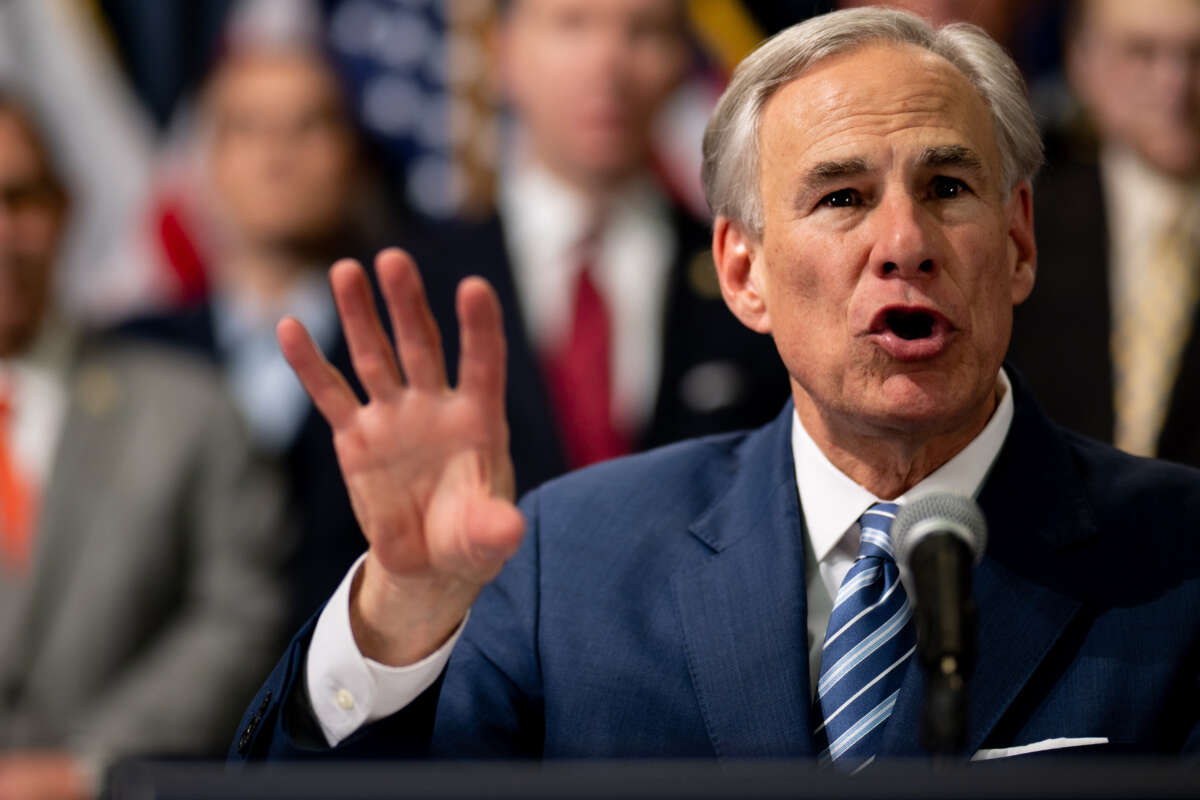Honest, paywall-free news is rare. Please support our boldly independent journalism with a donation of any size.
Texas Republican Gov. Greg Abbott has signed into law a bill that restricts local governments in the state from enacting and enforcing their own ordinances on a wide variety of issues.
House Bill 2127, dubbed the “Death Star bill” by its opponents (after the space station in the movie series Star Wars that the films’ antagonists use to destroy planets within the empire), passed the state legislature earlier this month. Abbott signed the bill on Wednesday and it will go into effect on September 1.
According to local government officials across the state who are concerned about its impact, the new law will restrict local governments from taking action on eight different types of government code, unless the state government explicitly gives them permission. Notably, the law is extremely ambiguous, making it unclear whether cities or counties can act on certain issues.
“The uncertainty surrounding the validity of ordinances stifles Council’s ability to meet the community’s needs,” said San Antonio city attorney Andy Segovia.
Local governments will likely be restricted from deciding on a number of items, including instituting construction standards that go beyond state law. A Harris County, Texas, regulation that requires construction companies to keep records on safety — and which bars unsafe companies from being considered for certain projects — would be on the chopping block, critics of the law have noted.
“Work in construction in Texas is extremely unsafe, with something on the order of about one worker dying a day due to safety considerations in Texas on these kinds of jobs,” Hany Khalil, executive director of the Texas Gulf Coast Area Labor Federation, said last month.
Other ordinances or proposals by local governments that could be affected by the new law include:
- Regulation of payday loan lenders;
- Stricter bans on discrimination in hiring and housing;
- Minimum wage requirements and other workers’ rights protections that go beyond state standards;
- Paid leave ordinances; and
- Bans on plastic grocery bags.
The new law even has the potential to affect how governments can react to natural disasters, including hurricanes that hit coastal areas of the state, critics have pointed out.
Advocates for the law have claimed that limiting local governments’ abilities will provide “consistency and predictability” across the state. But local leaders in Texas have rejected that justification, and are describing the move as a power grab more than anything else.
Ultimately, critics of the law predict it will protect business and corporate interests at the expense of protections for consumers and workers in the state.
In May, San Antonio councilwoman Adriana Rocha Garcia described the proposal as “the most dangerous bill” of the legislative session, as it would detrimentally “affect cities across the state.”
“This is a big bill intended to dismiss and remove protections from everyday working people,” warned another San Antonio councilwoman, Teri Castillo.
Press freedom is under attack
As Trump cracks down on political speech, independent media is increasingly necessary.
Truthout produces reporting you won’t see in the mainstream: journalism from the frontlines of global conflict, interviews with grassroots movement leaders, high-quality legal analysis and more.
Our work is possible thanks to reader support. Help Truthout catalyze change and social justice — make a tax-deductible monthly or one-time donation today.
